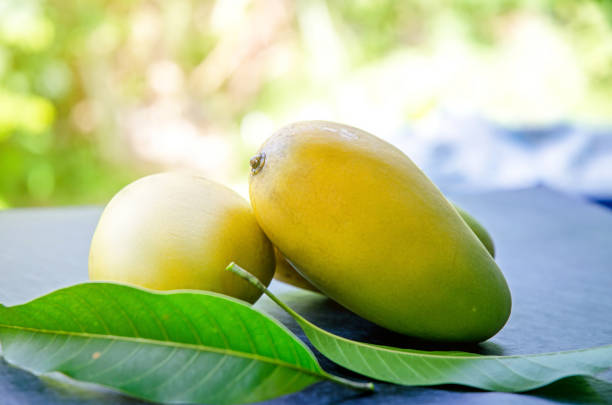Mangoes have a lot of fiber and natural substances that can be helpful for relieving constipation. [1]
Constipation is a common digestive issue that affects millions of people worldwide. It is defined as having fewer than three bowel movements per week, and the stool is usually hard, dry, and difficult to pass.
Constipation can be caused by various factors, such as a low-fiber diet, dehydration, and lack of exercise, medications, and certain medical conditions.
In this article, we will explore the benefits of mango for constipation relief and provide some tips on how to incorporate this super food into your diet.

Benefits of Mangoes for Digestive Health
Mangoes are a nutrient-dense fruit that offer a range of health benefits, including promoting digestive health. Here are some reasons why mangoes are an excellent choice for improving your gut health:
1: High in Fiber
One of the most significant benefits of mangoes for constipation relief is their high fiber content. A single medium-sized mango contains about 3 grams of fiber, which is about 10% of the daily recommended intake for adults. [2]
Fiber is essential for maintaining regular bowel movements as it adds bulk to stool, making it easier to pass.
2: Rich in Nutrients
Mangoes are packed with essential vitamins and minerals that are vital for overall health and wellbeing. [3] They are an excellent source of vitamin C, which can help boost the immune system and reduce inflammation.
Mangoes are also rich in vitamin A, potassium, and folate, which support heart health, brain function, and fetal development.
3: Contains Digestive Enzymes
Mangoes contain digestive enzymes such as amylase, protease, and lipase, which help break down carbohydrates, proteins, and fats. These enzymes can aid in the digestion of food, which can reduce bloating, gas, and other digestive discomforts.
How Mangoes Can Help Relieve Constipation
Mangoes can help relieve constipation in two ways:
1: Softening Stool
Mangoes are high in fiber, which can add bulk to stool and soften it, making it easier to pass. This is especially beneficial for people who have hard, dry stools that are difficult to eliminate.
2: Stimulating Bowel Movements
Mangoes also contain natural sugars, such as sucrose and fructose, which can stimulate bowel movements. This can help regulate the digestive system and promote regularity, reducing the risk of constipation.
Mangoes are a delicious and nutritious fruit that can offer numerous health benefits, including easing constipation. They are high in fiber, essential nutrients, and digestive enzymes, which can help soften stool and stimulate bowel movements.
Incorporating more mangoes into your diet is easy and versatile, and can provide a natural solution to your digestive woes.
FAQs
Are mangoes good for weight loss?
Mangoes are relatively high in calories and natural sugars, so they should be consumed in moderation if you are trying to lose weight. However, their high fiber and nutrient content can help you feel fuller for longer and reduce cravings, which may aid in weight loss.
Can mangoes cause diarrhea?
Eating too many mangoes or consuming unripe mangoes can cause diarrhea in some people. Make sure to eat ripe mangoes in moderation and choose the ones that are slightly soft to the touch.
Can mangoes be frozen?
Yes, mangoes can be frozen for later use. Peel and slice the mangoes and place them in a single layer on a baking sheet. Freeze for a few hours, then transfer the slices to a freezer-safe container or bag.
Are canned mangoes as healthy as fresh ones?
Canned mangoes may contain added sugars and preservatives, so they are not as healthy as fresh ones. However, they can still provide some health benefits and can be a convenient option for off-season use.
Can mangoes cause allergic reactions?
Yes, some people may be allergic or sensitive to mangoes, especially if they have a latex allergy. The symptoms may include itching, swelling, hives, or difficulty breathing. If you experience any of these symptoms after consuming mangoes, seek medical attention immediately.

